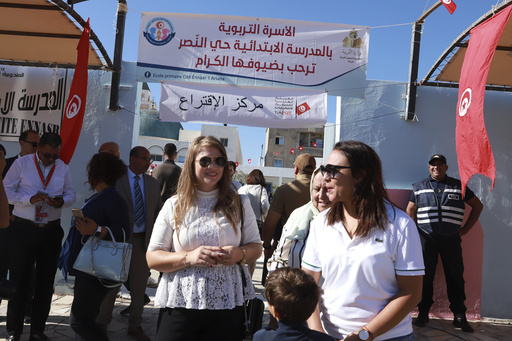In Tunisia, citizens took part in the country’s third presidential election following the Arab Spring revolt, casting their votes on Sunday. Among the three candidates in the running are President Kais Saied, imprisoned businessman Ayachi Zammel, and Zouhair Maghzaoui, a leftist who initially supported Saied before deciding to challenge him. Saied, a 66-year-old current president, is seen as the frontrunner, attributed to his suppression of opposition and efforts to diminish checks on his authority.
The opposition largely refrained from participating in the election, citing concerns about a lack of democratic prerequisites for a fair voting process. Though many candidates had shown interest in challenging Saied, only 17 of them submitted the necessary paperwork to compete, with the election commission, all appointed by the president, approving just three candidates. This decision disregarded a court order calling for the reinstatement of three other contenders.
During the course of the electoral process, Zammel was detained and accused of falsifying voter signatures to meet the requirements for candidacy, allegations refuted by his legal representative. Tunisia’s presidential election signifies the third since the country saw demonstrations that led to the removal of President Zine El Abidine Ben Ali in 2011, marking the first ousting of an autocrat in the wave of uprisings known as the Arab Spring, which also impacted regimes in Egypt, Libya, and Yemen.


